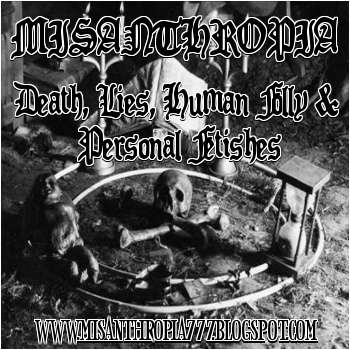
By Leanne Larmondin, Religion News Service
TORONTO — You've never seen Jesus like this before: dripping red nail polish around the nails in his feet and hands, an irreverent riff on the crucifixion wounds. The provocative title of the painting: "Jesus Does His Nails."
Blasphemous? Absolutely. Deliberately provocative? You bet.
FAITH & REASON: Which is worse? Polite hypocrisy or #$^%&#?
'NONES': People with 'no religion' gain on major denominations
It is part of a recent art exhibit in Washington that marked the first-ever International Blasphemy Day (Sept. 30) at the Center for Inquiry DC near Capitol Hill.
Artist Dana Ellyn says her "Blasphemy" paintings are a tongue-in-cheek expression of her lack of belief in God and religion.
The self-described "agnostic atheist" — she doesn't believe in the existence of any deity but can't say for sure one doesn't exist — says her introduction to religion was in college when she studied art history. Stories from the Bible, she says, are just that: stories.
"My point is not to offend, but I realize it can offend, because religion is such a polarizing topic," Ellyn said of the exhibit.
Atheists, skeptics, freethinkers and free-speech advocates around the world marked Blasphemy Day by mounting their soapboxes — figuratively and literally — and uttering words and displaying images that may cause offense.
And they're making no apologies.
"We're not seeking to offend, but if in the course of dialogue and debate, people become offended, that's not an issue for us," said Justin Trottier, a Toronto coordinator of Blasphemy Day and executive director of the Ontario chapter of the Center for Inquiry. "There is no human right not to be offended."
St. Thomas Aquinas described blasphemy — deliberately showing contempt or irreverence for something considered sacred — as a sin "committed directly against God ... more grave than murder." In the Gospel of Mark, Jesus said, "Whoever blasphemes against the Holy Spirit can never have forgiveness, but is guilty of an eternal sin."
While it may sound as anachronistic as a witchcraft trial, blasphemy remains punishable by death in countries like Pakistan and Afghanistan.
In addition, Ireland recently introduced a defamation law making blasphemy punishable by fines up to 25,000 euros ($37,000). What's more, six U.S. states (Massachusetts, Michigan, South Carolina, Oklahoma, Pennsylvania and Wyoming) have laws that, in some way, prohibit or regulate blasphemy, noted Ron Lindsay, a lawyer and president of the CFI International in Amherst, N.Y.
CFI also cites efforts by the United Nations to introduce anti-blasphemy resolutions that many say would curtail free speech about religion.
Sept. 30 was chosen for the inaugural Blasphemy Day because it is the anniversary of the 2005 publication of the controversial Muhammad cartoons in the Danish newspaper Jyllands-Posten. The cartoons resulted in worldwide riots by outraged Muslims and widespread self-censorship by media.
MUSLIM CARTOONS: Yale criticized for nixing them from book
Lindsay said the Blasphemy Day events are part of his group's larger Campaign for Free Expression, which encompasses more than protection of speech about religion. CFI, he said, aims to expose all religious beliefs to the same level of inquiry, discussion and criticism to which other areas of intellectual interest are subjected.
Besides the Washington art exhibit, Blasphemy Day events included:
— a Blasphemy-Fest! at CFI Los Angeles that featured a talk about free speech followed by three provocative films;
— supporters worldwide were encouraged to take up The Blasphemy Challenge (blasphemychallenge.com) by uploading their denials of faith to YouTube. A typical recording: "Hi, my name is Ray and I deny the Holy Spirit. (pause) No lightning. Maybe next time." It has nearly 1 million views and 1,500 video responses so far.
— a Speaker's Corner, modeled after the famed soapbox in London's Hyde Park, and a Blasphemy Challenge at CFI Toronto;
— a blasphemy contest held by CFI International, in conjunction with its Campaign for Free Expression, in which participants were invited to submit phrases, poems, or statements that would be, or have been, considered blasphemous. Winners received T-shirts and mugs printed with their winning phrases.
"The point we're trying to make is that we're against restrictions on speech based purely on the possibility that some people might be offended," Lindsay said. "Because if you go down that path there's no end to it."











 "He who can, does. He who cannot, teaches."
"He who can, does. He who cannot, teaches."



 "Being is substance and life; life manifests by movement; movement is perpetuated by equilibrium; equilibrium is therefore the law of immortality.
"Being is substance and life; life manifests by movement; movement is perpetuated by equilibrium; equilibrium is therefore the law of immortality.


 "The doctrine of equality!... But there exists no more poisonous poison: for it seems to be preached by justice itself, while it is the end of justice.... "Equality for equals, inequality for unequals" that would be the true voice of justice: and, what follows from it, "Never make equal what is unequal."
"The doctrine of equality!... But there exists no more poisonous poison: for it seems to be preached by justice itself, while it is the end of justice.... "Equality for equals, inequality for unequals" that would be the true voice of justice: and, what follows from it, "Never make equal what is unequal."



No comments:
Post a Comment
Note: Only a member of this blog may post a comment.